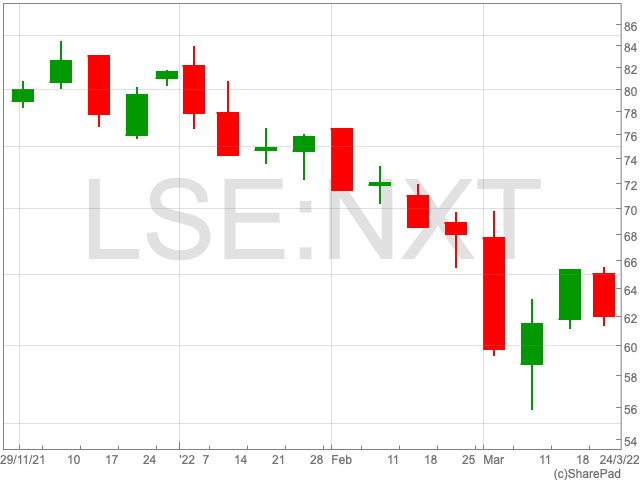Next’s pre-tax profit increased from £342m to £823m in 2022, rising 140% as online sales recovered the gap created by the pandemic in retail sales.
The retailers saw total group revenue grow 34% to £4.8bn in 2022, with significant contributions of £3.1bn from the online segment.
Next’s retail sales saw an increase of 50% from £954m to £1.4bn in 2022.
Total brand full-price sales for the company rose 32.4% to £4.7bn in 2022.
Next saw online sales grow specifically in homeware and kids apparel during lockdown over their first quarter.
The company managed to meet the demand for adult clothing despite stock shortages in the second half, where consumers spent lockdown savings.
Steve Clayton, HL Select fund manager said, “we hold NEXT plc in our UK funds because it is a superbly managed retailer, with the highest online exposure of any High Street operator in the UK and a cash generative business model.”
“The business is performing strongly in unusual circumstances. Demand is holding up well, with the stores trading ahead of expectations, although some of this is a function of pulling business back from the website, post lockdowns.”
Net debt excluding lease debt reduced from £610m to £600m.
Earnings per share rose 138% in 2022 to 530.8p compared to 223.3p in 2021.
Like many big names such as McDonald’s and Starbucks, Next halted their business in Ukraine and Russia generated by their website.
The company has lowered their sales guidance by 2% and profit guidance by 1.2% for the coming year.
Next reportedly expects to mitigate losses from lower margin sales from overseas and costs incurred from increased markdowns through better performance in the UK retail market.
The company predicted a 5% increase in full-price sales, alongside group profits of £850m in 2023.
“Having previously sold well online in Russia, there is an obvious hit that has to be taken, but the business is more than strong enough to cope,” said Clayton.
The group has a business model for the next 15 years for how the company will fare, through which a cash generation of £15bn is what they are capable of.
Steve Clayton highlighted the potential value in the stock by making a comparison to their forecast cash generation and Next’s market cap, currently under £9bn.
“The group has long had a policy of returning all excess cash to shareholders, and today announced a return to pre-pandemic dividend levels, augmented by share buy-backs to absorb surplus cash.”
“If their modelling is anywhere near accurate, then shareholders can look forward to a lot more of that in future,” stated Steve Clayton.

“The market’s reaction, knocking the shares back a couple of per cent in early trading seems a knee-jerk to the reduction in sales forecasts. But all of that relates to the events in Ukraine and cash generation expectations for the current year are actually improved.”
“Longer term, that cash flow modelling suggests that there is in fact much for investors to look forward to.”
Next shares were trading down 3% to 6,198p as a reaction to the company’s lowered growth forecasts.
